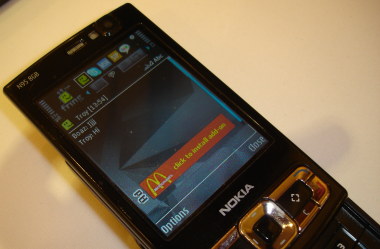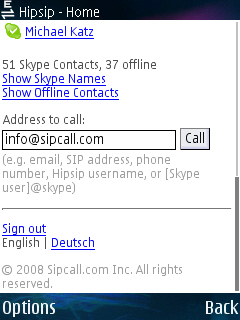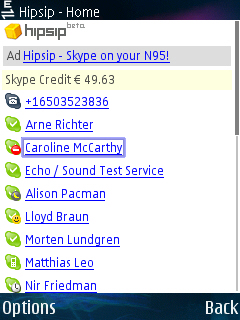As it is now becoming more and more clear that Skype’s services will not be available much longer because their software license will expire, it is now the time to switch to VoipBuster. [...] To make sure everyone can still use Voice Over IP at even cheaper rates than Skype, Voipbuster has lowered loads of destinations.
Sipgate basically said the same with its lates press release on August 19th, 2009. Everyone wants to eat from Skype's lunch.
If Skype allows developers to treat the call function as a service inside of other applications, it can only loose. When people can make their Skype calls on Facebook, Outlook, normal phones or wherever, they will use Skype only for inbound calls and for the free Skype to Skype calls. Outbound calls to phone networks (PSTN) will be channeled over Skype competitors who offer cheaper prices for their SIP services.
With some VoIP tinkering, I have already achieved most of this: I receive Skype calls on my normal phone, which is connected to a small PBX device (Fritz!Box), outbound calls to the PSTN go over cheaper competitors. So Skype never gets money from me. The only thing that is still missing are Skype to Skype calls from my Fritz!Box. They would be possible if Skype was more open, they way I already make and receive Gizmo5 calls on this box (which, BTW, doesn't earn money from me either).
If Skype allows that too - they will never see me again, although I would be a daily freerider on their network. I would not pay for Skypeout (as I already don't do) and I wouldn't even open their software on my PC, which they could at least use as a screen for visual advertising.
I repeat my concerns: If Skype opens too much, they can become the dumbest pipe of all. Other companies and services would channel their calls for free over Skype's gratis P2P network. Gizmo5 already does it with their OpenSky service: It let's you "call Skype or receive Skype calls" on SIP devices (at least they say so). Gizmo5 thus piggybacks its service on Skype's network and charges its users $20 per year for OpenSky. Skype gets nothing, that's the disadvantage of not having an own phone network but APIs. Truphone, Nimbuzz and Fring offer similar Skype services for mobiles.
I guess the new Skype owners have already considered this.


